The full references for each item are indicated in the downloadable files.
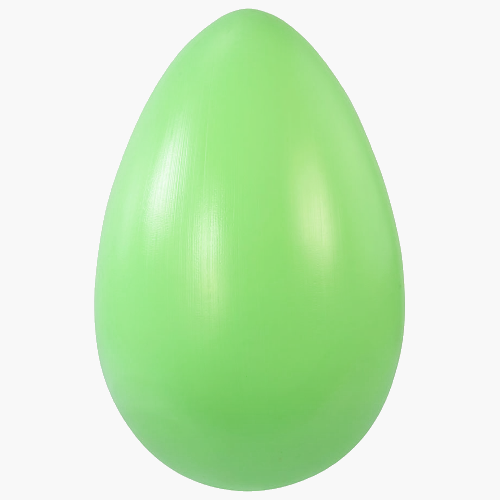 | A universal equation for the shape of an egg | It’ s called oomorphology. Defining pear-shaped eggs used to be a nightmare, but this has now been solved. Mathematicians, engineers, biologists and egg technologists can finally relax… | Egg |
| Ancient genomes reveal hidden history of human adaptation | If you think humans are no longer evolving and adapting to their environment, think again! | Selective sweep | |
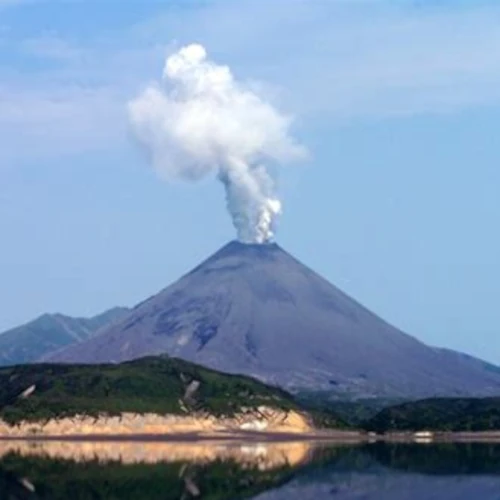 | Volcanic activity and low ocean oxygen events linked to climate warming and rapid ice melt during last ice age | I have always been fascinated by the potential interactions between atmosphere and lithosphere. The paper shows some large-scale effects; its not only snow melt in Alaska and the resulting changing pressure on the ground that links volcanoes to weather. | Glaciers-volcanoes-ocean |
| Writing on the hand L’écriture sur la main | A bronze hand from pre-Roman Spain appears to be engraved in the ancestor of the Basque language. Une main de bronze datant de l’ Espagne pré-romaine porte un texte en basque. | English French | |
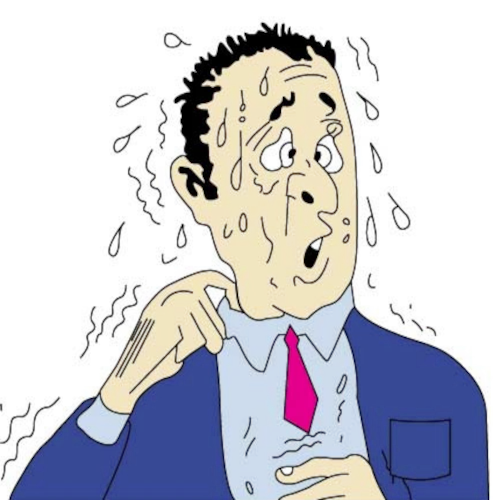 | Large parts of Europe are warming twice as fast as the planet on average | Climate results from the interaction of several factors. Aerosol particle concentrations led to cooling in Central and Eastern Europe over the past four decades. But now aerosol reductions result in the April–September period increasing by around 1°C. | Europe warms fast |
| How do microplastic particles differ across the Atlantic Ocean? | Ocean currents sort microplastic particles: The plastic wrapping of your latest Amazon order and the old paint you have removed from your shutters won’ t stay together! | MIcroplastic diversity | |
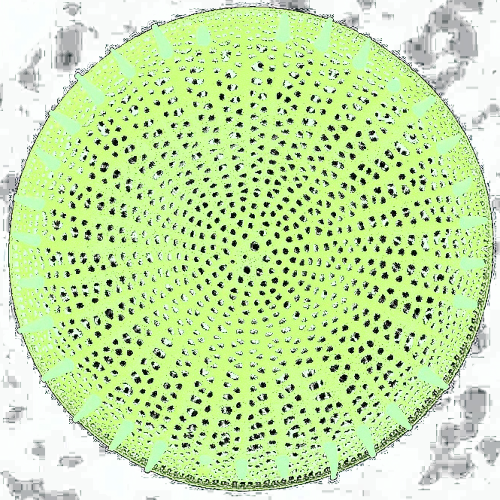 | Optical role of diatom shell | The beautiful silica diatom shells serve a purpose beyond protecting the one-celled alga that lives inside: it also increases the light available for photosynthesis | Diatom shells |
 | The 2022 Global witchcraft inventory | Witchcraft is the art of remotely affecting other people. You’ ll be surprised to find how many people believe in it. See comments below for an amazing confirmation From the NY Times about Argentinian Football. | Witchcraft |
| Breeding plants to cooperate | It seem that plants can be bred to cooperate and share rather that fight for environmental resources such as water. | plants cooperate | |
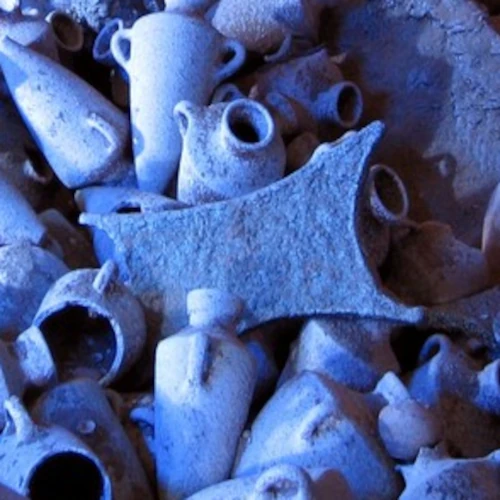 | 2,000-year-old shipwreck reveals complex trade network | If you need tin to turn soft copper into more resistant bronze, you’ ll go to great lengths to get it. This is what people did thousands of years ago, bringing the metal from central Asia to the Mediterranean. Original article: Tin from Uluburun shipwreck shows small-scale commodity exchange fueled continental tin supply across Late Bronze Age Eurasia | Uluburun |
| Rapid warming linked to leap in tropical seasonality | Climate warming is not so well-behaved as we would like: two warming events around 14,700 and 11,700 years ago had spectacular temperatures jumps by up to 10° C over just a few years to decades. This may be triggered by short-term (seasonal) variations. Original article: Rapid warming linked to leap in tropical ocean seasonality | Tropical seasonality | |
| Landslide risk remains years after even a weak earthquake | Based on Italian data, the paper shows that landslides may be long-term consequences of short-lived earthquakes. Original article: Triggering and recovery of earthquake accelerated landslides in Central Italy revealed by satellite radar observations | Landslides from eartquakes | |
 | Domestication of cats | Cat genes reveal how invention of agriculture first bonded cats with people in ancient Mesopotamia. From then on, cats migrated with humans all over the world. Original article: Genetics of randomly bred cats support the cradle of cat domestication being in the Near East | Cats |
| Assessing El Nino ‘flavors’ to unravel past variability, future impact | No two El Nino events are the same. This has been going on for ages… and can help us understand tomorrow’s event. Original article: Holocene hydroclimatic variability in the tropical Pacific explained by changing ENSO diversity | El Nino flavours | |
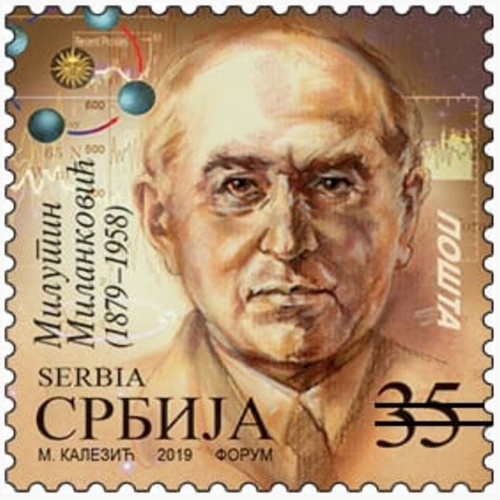 | Milankovitch is back | Milutin Milankovitch is that immense Serbian scientist who developed the astronomical theory of palaeoclimates. Read his biography (included in the file) Original article: Astrochronology of the Paleocene-Eocene Thermal Maximum on the Atlantic Coastal Plain | Milankovitch |
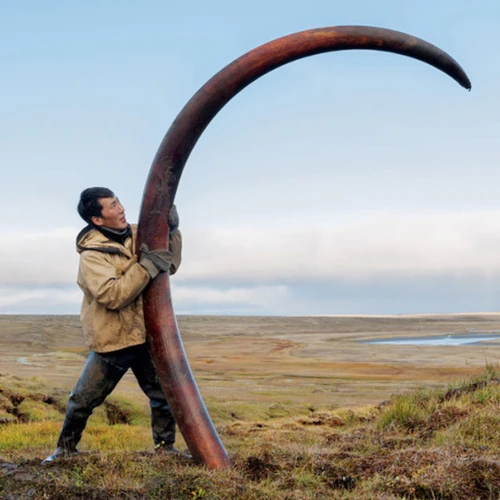 | Eifel Megafauna succumbed to forest increase | If you think that our Neanderthal or sapiens ancestors ate the last mammoth, think again: it seems that mammoth and bison could not adapt to the forests that developed after glaciers retreated. Original article: Thresholds for the presence of glacial megafauna in central Europe during the last 60,000 years | Eifel megafauna extinction |
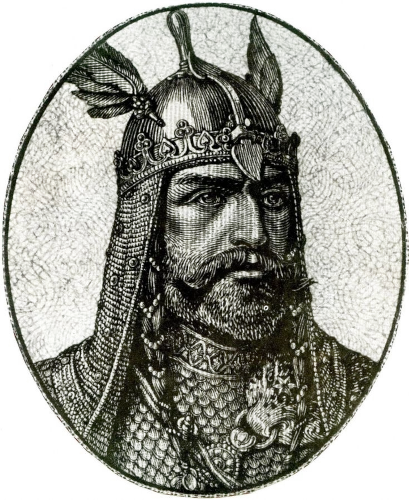 | Drought driven Huns | It seems that climate, which appear to be one of the ultimate drivers of our societies, has been driving Attila’ s Huns too. Original article: The role of drought during the Hunnic incursions into central-east Europe in the 4th and 5th c. CE | Drought driven Huns |
  | (Very) Early American settlers | The window for the migration of humans into the Americas is narrowing… Original article: Bering Land Bridge formed surprisingly late during last ice age | Peopling of the Americas |
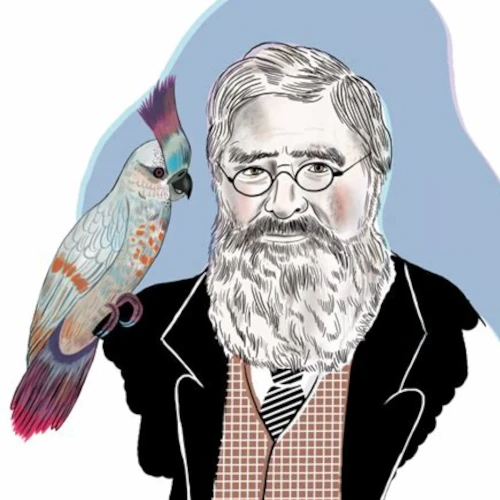 | Alfred Russel Wallace | I have always liked him, simply because he’ s more likable than Darwin… They knew each other well, and even “collaborated”, but Darwin nevertheless forgot to mention Wallace in the first edition of the Origin of species… Original article: Shipwrecked science | Alfred Russel Wallace |
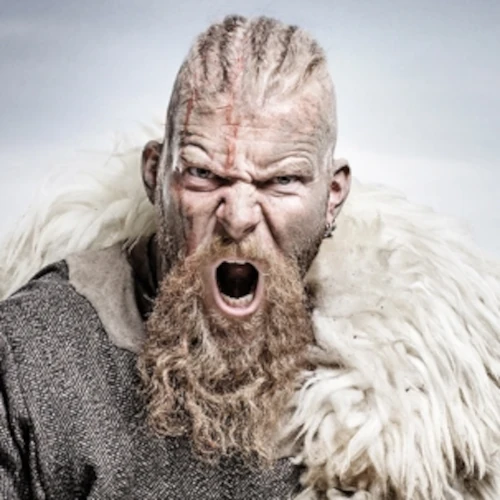 | Viking genetics | There have been some interesting recent publications. As always, we seem to have forgotten the women! Also read the October 2022 Scientific American article on The Power of Viking Women! Original article: The genetic history of Scandinavia from the Roman Iron Age to the present | Viking genetics |
 | The extraordinary durability of Roman concrete | The secret of Roman concrete finally revealed! Also check the post: L’ extraordinaire durabilité du béton romain. Original article: Hot mixing: Mechanistic insights into the durability of ancient Roman concrete | Roman concrete |
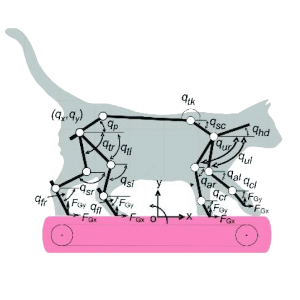 | Cat locomotion | Understanding how cats manage to “always” land on their feet, no matter how they fall Original article: Sensory Perturbations from Hindlimb Cutaneous Afferents Generate Coordinated Functional Responses in All Four Limbs during Locomotion in Intact Cats | Cat locomotion |
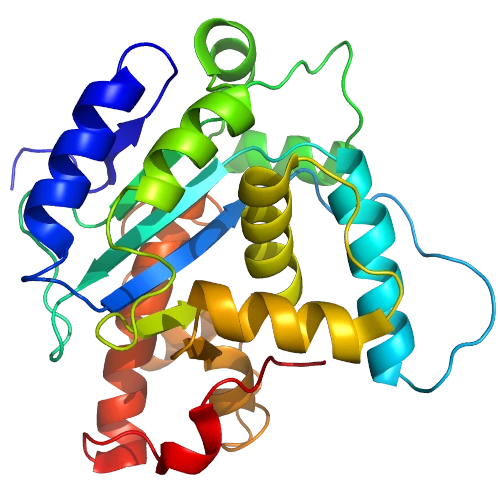 | Why does life use just 20 amino-acids? | 4 (5) DNA bases are assembled in 3-letter codons that correspond to one of just 20 amino acids. Why so few? This paper has the beginning of an answer. | Only 20 AAs |
 | Simple rules outsmart “intelligence” | Starting with John Conway’ s Game of life, we have learned that the application of simple rules can often lead to amazingly complex systems. There has been a recent flurry of research on the subject.Original article: Multi-scale organization in communicating active matter | Spontaneous complexity |
 | The hard right and climate catastrophe are intimately linked. This is how La droite dure et la catastrophe climatique sont intimement liées. Voici comment | A June 2023 Guardian feature by George Monbiot followed by a Nature article La traduction française d’ un article du Guardian de juin 2023 par George Monbiot, suivi d’ un article de Nature | Hard right and climate |
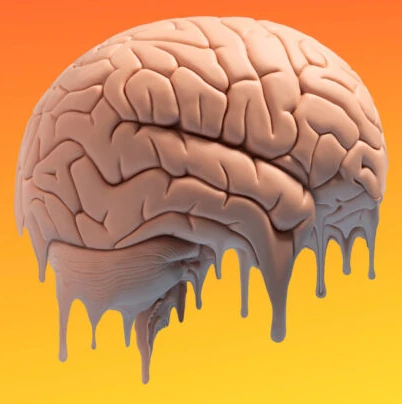 Source: Science & Vie | Les changements climatiques en cours affectent profondément nos fonctions cérébrales, dès avant la naissance. | Traduction d’un extrait d’un livre à paraître de Clayton Page Aldern, publié dans le Guardian du 27 mars 2024. | Le climat jusque dans notre cerveau |
 | Un Corbeau et un rat se posent quelques questions… | Petite histoire de science-fiction de Nature. Lien original en anglais. | Ces singes n’ont aucun sens |
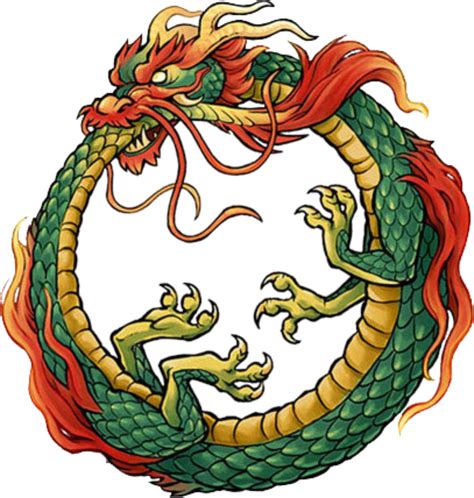 Source of ouroboros | Synchronicity and causality | On the curious origin and ramifications of the concept of Synchronicity | Jung and Pauli |
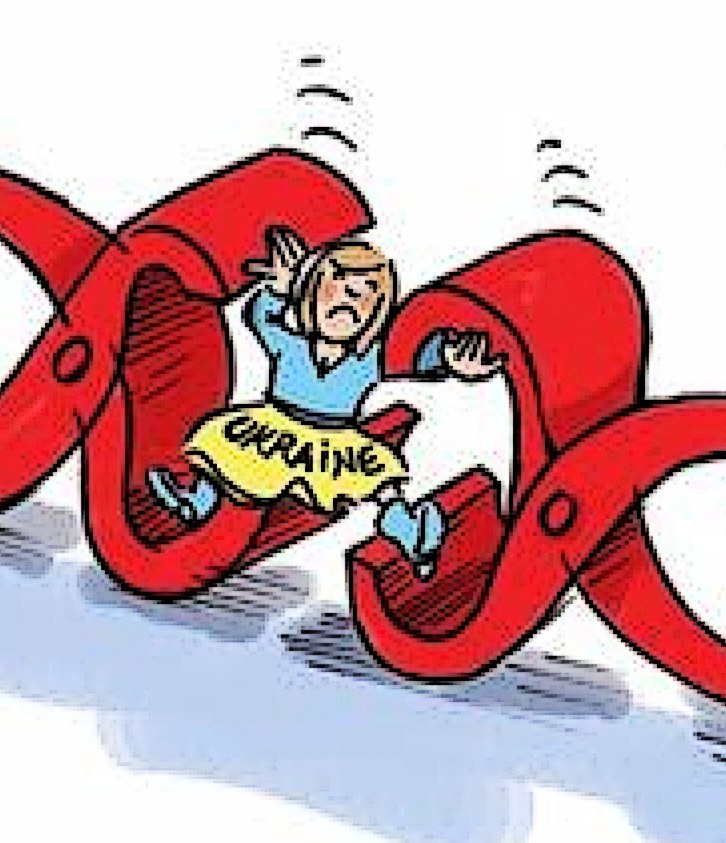 Source of cartoon | Nous sommes en 1938: La guerre de Poutine en Ukraine et les leçons de l’histoire | Traduction d’un article de Patrick Wintour dans le Guardian: il faudrait peut-être savoir ce que nous voulons! | Ukraine, oui ou merde? |
 Source of image | À part quelques gadgets technologiques, se pourrait-il que nous n’ayons pas inventé grand-chose d’utile depuis l’Âge du bronze? | Série de cinq articles de Stéphane Foucart dans Le Monde en 2024 | Kanesh |
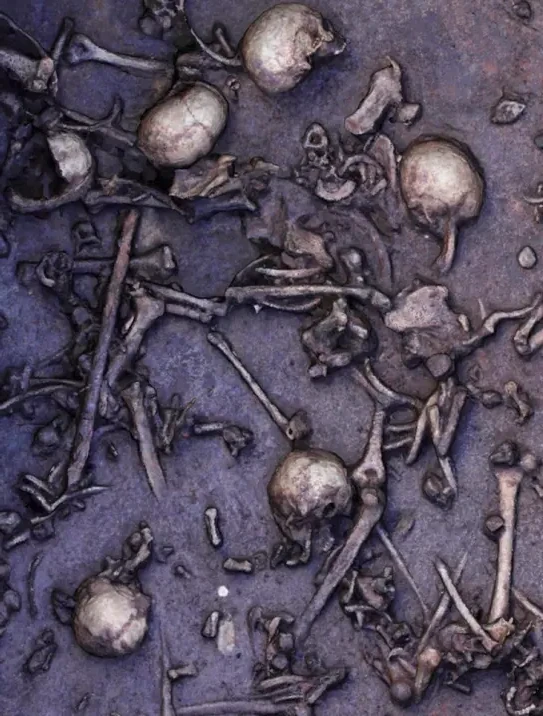 Source of image | Nous sommes en 1275 avant JC. Une bataille dans le Nord-est de l’Allemagne fait des centaines de morts. On s’interroge: qui sont ces gens et pourquoi ce massacre? | Un article de Matthias Hennies pour le Deutschlandfunk Cliquez ici pour le podcast original en allemand. | Tollense |
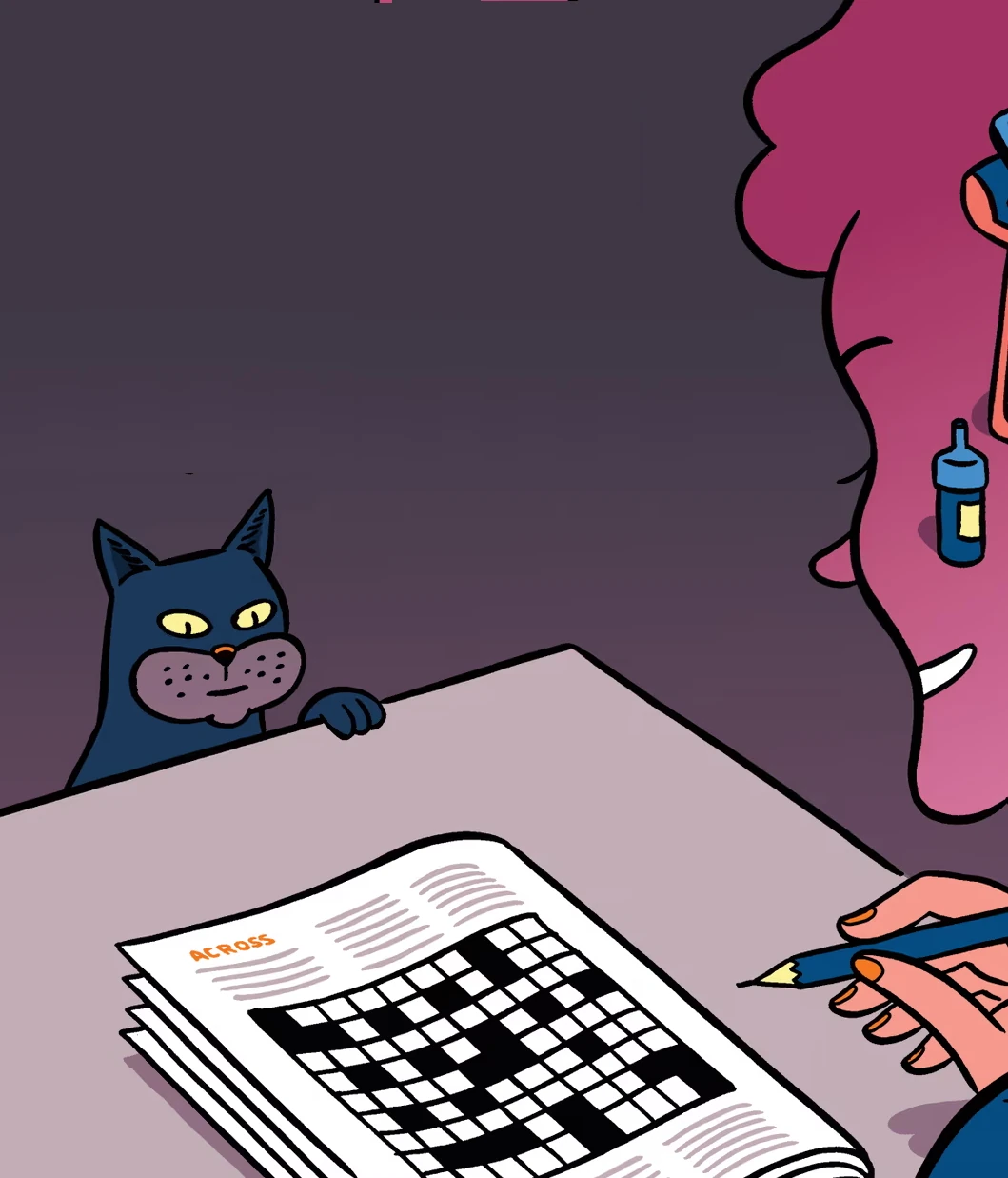 Image modified from The guardian | We are told that using our brain a lot keeps it alert and … alive | Article by Hannah Devlin in The guardian | BrainPower For an ebook-reader (e.g. kindle) version, click here. |
On 2022-12-17, before the final of the Soccer World championship in Qatar, the New-York Times had an amazing article:
Behind Argentina’s World Cup Magic, an Army of Witches
France might have its star Kylian Mbappé, but Argentina has hundreds of “brujas” casting spells to protect Lionel Messi and the rest of its national squad.
A quote: In recent weeks, hundreds, if not thousands of Argentine women who call themselves “brujas,” or witches, have taken up arms — in the form of prayers, altars, candles, amulets and burning sage — to protect their nation’s beloved soccer team in its quest to secure a third World Cup title and its first in 36 years.
Click here to read the article.
You may also enjoy this old 2011 Spiegel article: Burned for Spoiling Beer
Germany Rehabilitates Its Persecuted ‘Witches’